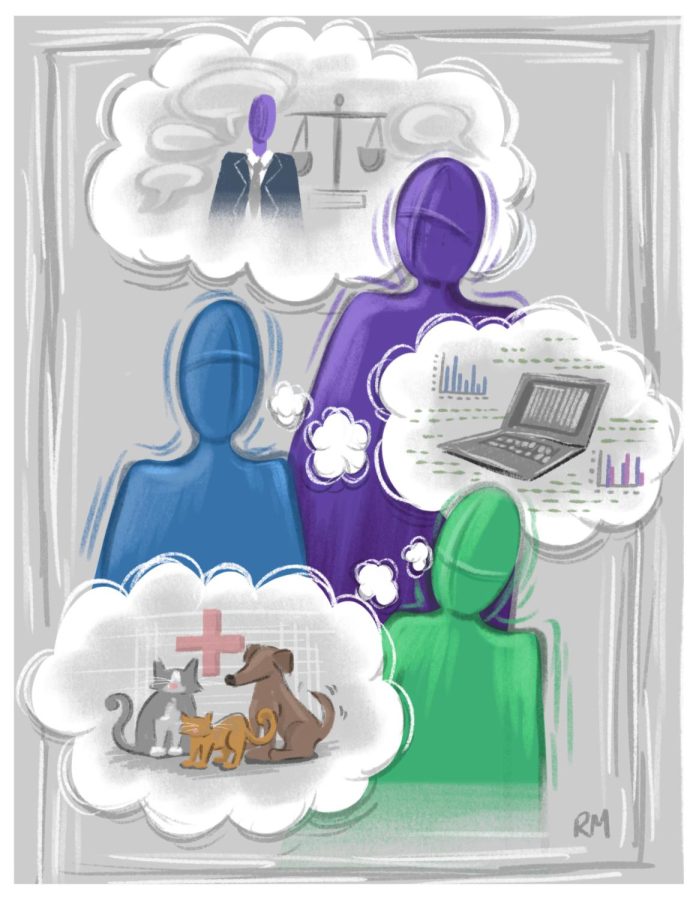What Comes Next?
It seemed like any other math course. In eighth grade, Alexander Marsh chose to take Geometry in order to pursue his love for mathematics and advance his skills before he started high school. He instantly fell in love with the real-world applications used throughout the course. Marsh was captivated with how geometry applied the numbers he was dealing with rather than doing traditional equations. He felt much more purpose within this genre of math compared to other classes he had taken.
“I grasped on to that [real-world application] and used it as motivation to get better at math and to apply myself more directly,” Marsh said.
As a kid, Marsh had a vast interest in basketball, specifically its analytical aspects. He would look at points, rebounds, player trends and predict players’ potential. Through this, Marsh developed his love for statistics. Once in high school, Marsh was able to evolve this interest for statistics into something he could pursue, rather than a simple hobby. Math teachers Maneesha Mankad and Ann Thomas played a big role in mentoring his journey.
“To have someone always ready and willing to help you is definitely necessary,” Marsh said. “I’ve struggled at times and wanted to quit, but having those people push you forward was extremely helpful.”
Marsh plans to major in statistical analysis when he gets to college and further pursue this interest. His path to choosing this career shows how details as small as love for sports can end up relating to complex math and data analysis.
For Lizzie Goldman, a senior at University of Michigan, her path to choosing a career started a little differently. Her father, an ex-attorney and law professor, would allow her to come into his lectures throughout her childhood starting at the age of six.
“I had these t-shirts I wore all the time that had famous Supreme Court cases on them, like Brown v. Board of Education,” Goldman said. “I was obsessed with them.”
Her dad would help her understand these important cases at a young age. It fascinated her. She loved hearing what her dad had to say and kept moving further and further along this path within law.
As Goldman went through middle school, high school and eventually college, she took numerous classes centered around law. Goldman would learn about different courts, judges and controversies in the American justice system.
“Every course I took that involved the legal field I found fascinating,” Goldman said. “I think [the classes] just validated the idea that I should go into law.”
After moving away for college, Goldman’s relationship with her father remained strong. However, his role within her life did change. Instead of her father being the main source to talk to when it came to law, it now became her professors. She branched out into different resource opportunities and ways to immerse herself further within the field of law, like interning for different attorneys and applying to law school.
Through the process of taking each new step further into this career path, Goldman solidified this choice as a long-term option. College proved to be the final piece of the puzzle in this process for her. She was able to take initiative and apply herself into new opportunities that would help her get to the level of expertise she was trying to reach.
When looking at the process of young adults choosing their careers in a bigger lens, independence proves to be the main turning point. When students finish high school, they generally will start looking for career opportunities that could work in their respective lives. Even if many of these choices don’t become long term options, the choices themselves are done by the person and they are able to dictate their own paths.
“If it’s not something that you actually enjoy or want to do, it’s not going to be something that’s obtainable for you,” Marsh said. “Even if it doesn’t seem like the most logical choice initially, branch out and try to find yourself because you can always change what you do.”










